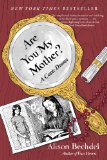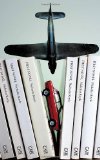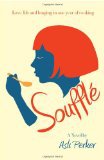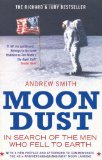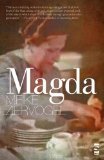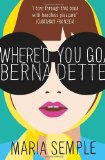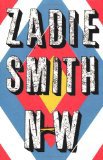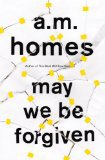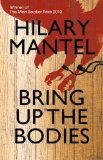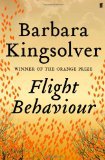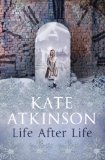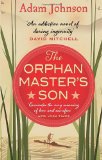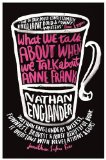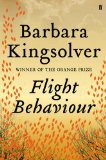 Shortlisted for 2013 Women’s Fiction Prize
Shortlisted for 2013 Women’s Fiction Prize
Flight Behaviour by Barbara Kingsolver
Five words from the blurb: butterflies, marriage, climate, destruction, poverty
Flight Behaviour begins with the discovery of thousands of monach butterflies a long way from their usual migratory path. An investigation into their behaviour change begins; a story that runs alongside that of one woman’s marital breakdown.
This book had many beautiful passages, but the climate change argument was heavy handed. I felt as though I was being given a lecture, with a weak, meandering story occasionally getting in the way of this verbal battering.
Climate change is an important subject, but I’m afraid this book lacked the emotional power required to motivate anyone to change their habits. I was surprised to see it shortlisted for the Women’s Fiction Prize.

.
Are You My Mother? by Alison Bechdel
Five words from the blurb: graphic novel, relationship, psychoanalyst, readers, mother
A few years ago I read Fun Home and loved its dry humor and originality. Unfortunately the sequel didn’t live up to my expectations and I ended up abandoning it after about 50 pages.
Are You My Mother? follows the same graphic novel format as Fun Home, but is a lot darker. It concentrates on the relationship between Bechdel and her mother, but feels repetitive. The continual introspection bored me and I longed for the book to take on a wider subject matter. Unfortunately my wish was granted with the introduction of Virginia Woolf. I’m not a fan of Woolf and the references to her work did nothing for me. The book went on to quote numerous passages from a psychology text book and the plot was too meandering to engage me with its weird content. I gave up after about 50 pages.
I recommend reading Fun Home, but only try this one if you’re a fan of complex psychoanalysis.
DNF
.
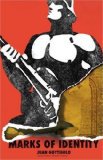 Translated from the Spanish by Gregory Rabassa
Translated from the Spanish by Gregory Rabassa
Marks of Identity by Juan Goytisolo
Five words from the blurb: Spain, exile, searches, history, political
I’m going to Barcelona soon and so wanted to read some fiction set in the city. This book was described as a Spanish masterpiece and seemed to be exactly what I was looking for. Unfortunately I found it very difficult to read – after about 30 pages I still had no idea what was happening. This is probably because I don’t know much about Spanish history. I’m sure that anyone familiar with the political situation within the country will appreciate this, but I’m afraid it was lost on me.
DNF
Have you read any of these books?
What did you think of them?

